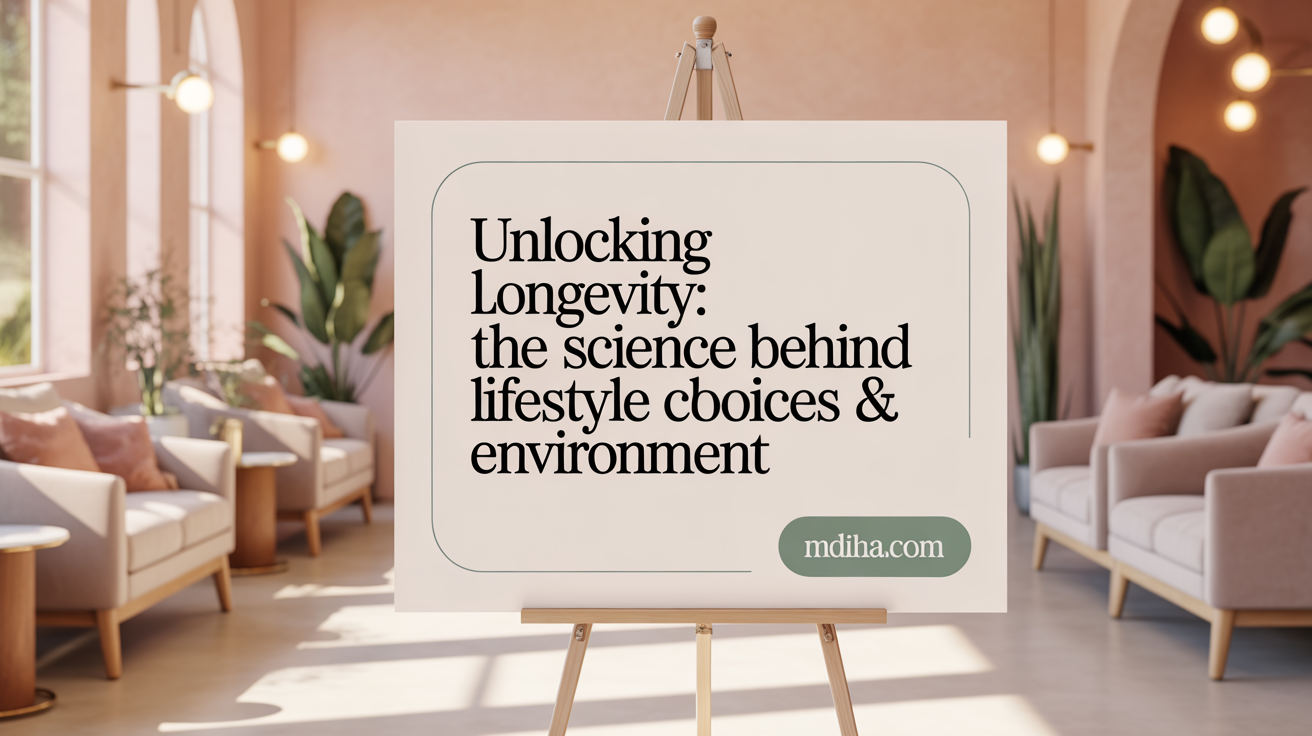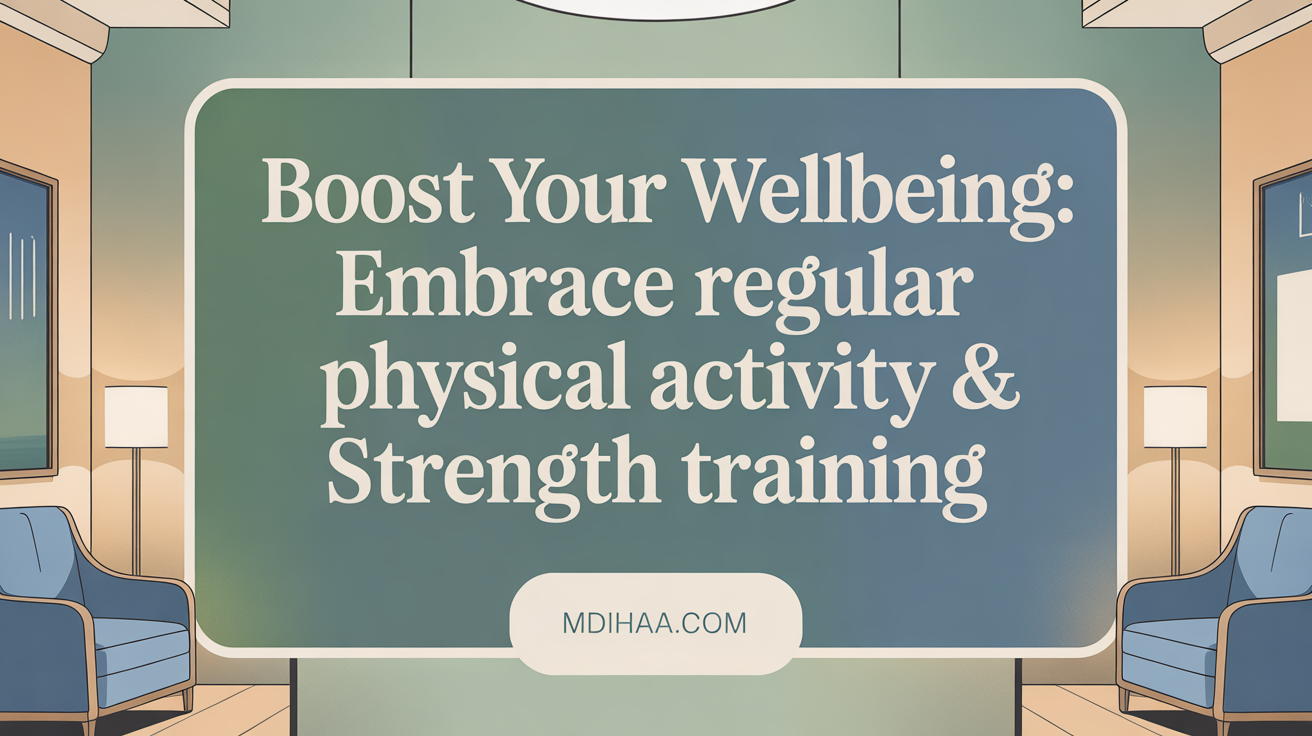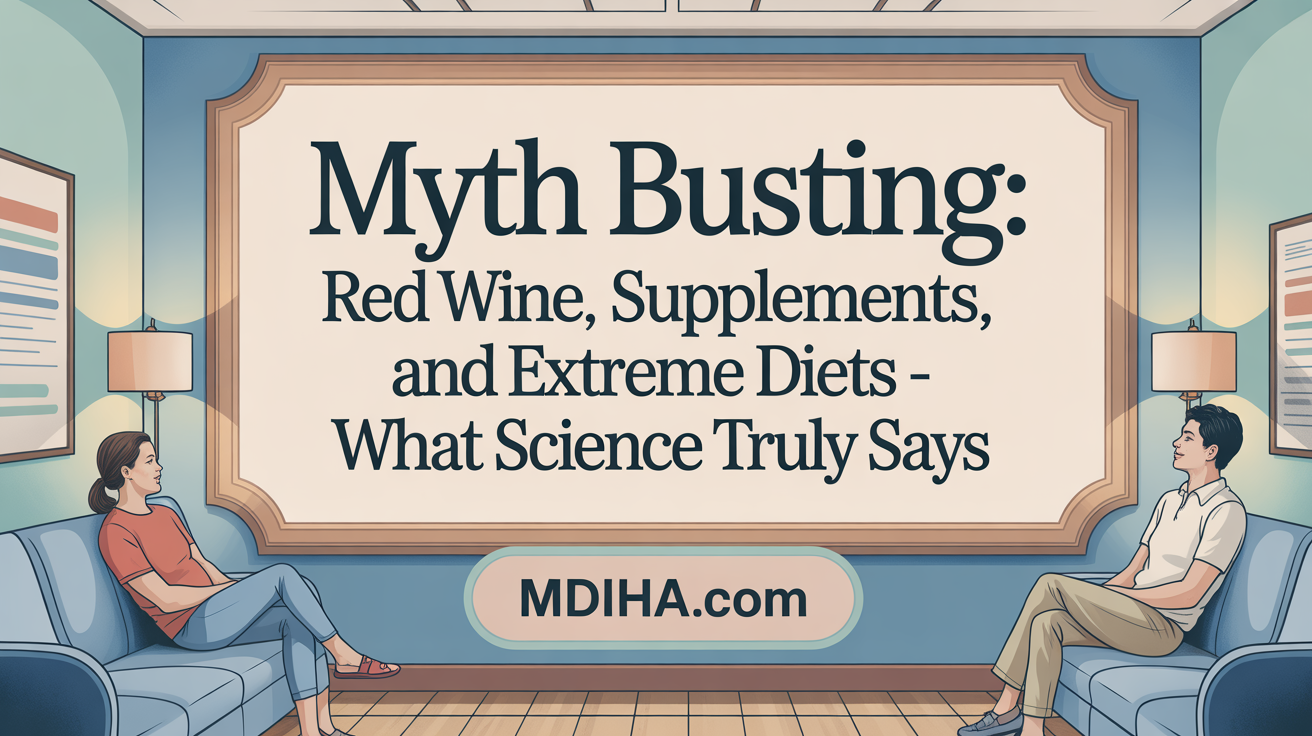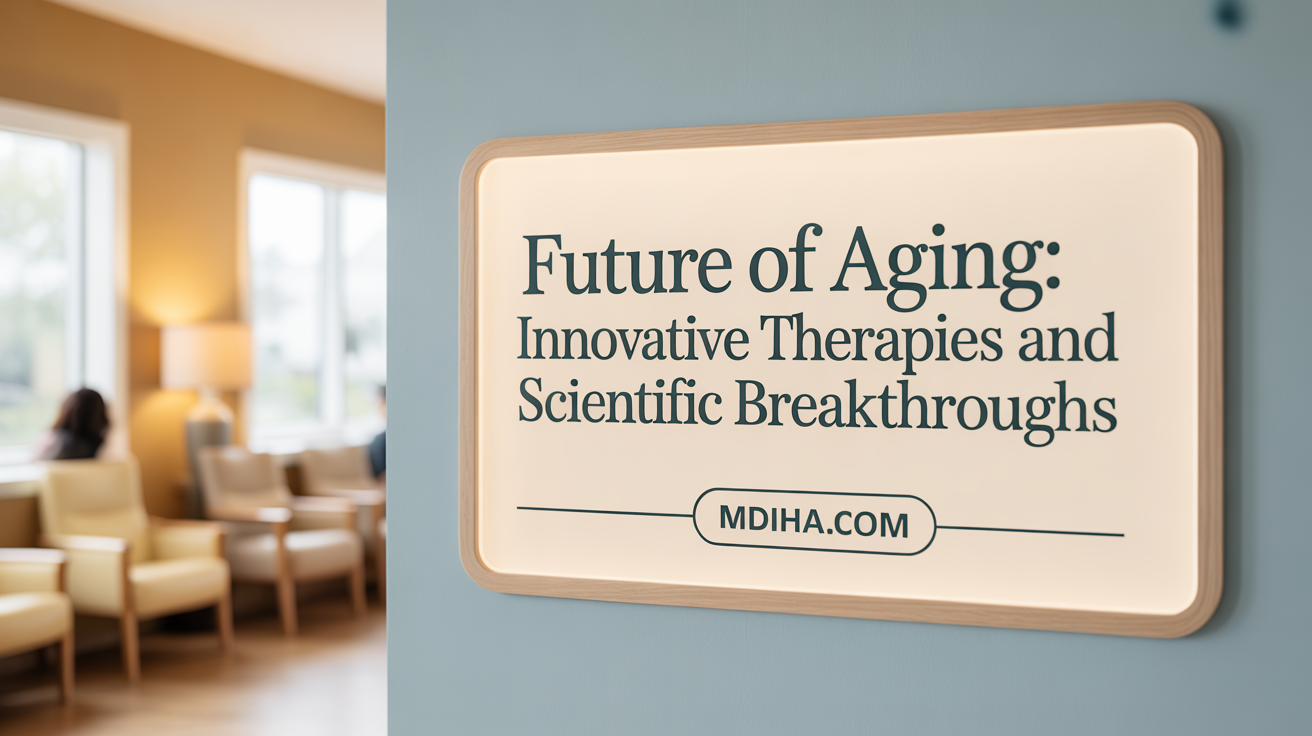Understanding the Truth About Aging and Lifespan
In a world eager for the fountain of youth, misinformation about how to extend lifespan and age healthily proliferates. The Michigan Institute for Healthy Aging (MIHA) offers science-backed guidance to cut through the myths surrounding longevity. This article explores common misconceptions, highlights credible research, and clarifies what truly influences how long and how well we live.
Key Drivers of Longevity: What Science Reveals

What are the key factors that contribute to longevity according to scientific research?
Scientific studies show that longevity is influenced by a combination of lifestyle choices and environmental factors. Regular physical activity, such as walking or yoga, supports cardiovascular health and helps prevent chronic diseases. Maintaining a balanced diet filled with fruits, vegetables, whole grains, and legumes can significantly lower the risk of heart disease, cancers, diabetes, and mental decline.
Sleep quality also plays a crucial role. Consistently getting 7 to 9 hours of sleep helps protect brain health and reduces the risk of dementia. Conversely, poor sleep patterns and irregular sleep can adversely affect overall health.
Avoiding harmful habits like smoking and limiting alcohol intake are essential for reducing the risk of deadly diseases. Excessive alcohol consumption, especially if moderate drinking like red wine is not conclusively beneficial, can lead to liver disease and other health problems.
A balanced lifestyle that combines moderate exercise, a nutritious diet, proper sleep, and stress management significantly influences lifespan. Genetics do play a part, but environmental factors like diet, physical activity, and psychosocial well-being tend to have a larger impact.
Research also suggests that simplicity in dietary patterns is better than extreme diets such as calorie restriction, which, although promising in animals, lacks concrete evidence and could be harmful in humans.
In summary, embracing healthy habits centered around balanced nutrition, consistent physical activity, good sleep hygiene, and social connections can substantially enhance longevity and well-being.
Exercise and Physical Fitness: Cornerstones of Healthy Aging

How does physical activity most significantly impact longevity?
Physical activity plays a crucial role in extending lifespan by improving overall health and reducing the risk of many chronic diseases. Regular exercise enhances cardiovascular and respiratory function, which are vital for sustaining life. It also strengthens muscles, improves balance, and helps in weight management, lowering the likelihood of heart disease, diabetes, and some cancers.
Engaging in at least 150 minutes of moderate activity weekly not only benefits physical health but also promotes better sleep, mental well-being, and cognitive function. These combined effects contribute to longer, healthier lives. When physical activity is part of a balanced lifestyle that includes good nutrition, avoiding smoking, limiting alcohol, and maintaining social connections, the positive impact on longevity is magnified.
Research indicates that such healthy habits can add approximately 12 to 14 years to a person's lifespan. Public health measures that support active living and holistic wellness are essential for improving longevity across diverse populations. In essence, consistent physical activity is a core element of a comprehensive approach to healthy aging.
What physical capabilities serve as important predictors of longevity?
Certain physical skills and strengths can predict how long a person might live. Features like VO2max, grip strength, leg strength, and good balance are strongly linked to survival rates.
Higher VO2max, the maximum rate of oxygen consumption during exercise, indicates better cardiovascular health and is associated with a lower risk of early death and chronic illnesses. Similarly, greater grip and leg strength are connected to reduced mortality, emphasizing the importance of maintaining muscular strength.
Muscle mass and muscular power are vital not only for mobility but also for preventing frailty and disability. Resistance training helps preserve these qualities into old age. Meanwhile, good balance and regular aerobic exercise stimulate brain health by promoting growth factors such as CREB, which support neuron growth and cognitive resilience.
Collectively, these physical abilities—strength, cardiovascular fitness, and agility—are fundamental in lengthening life and improving its quality, especially when maintained through consistent exercise routines.
Debunking Popular Longevity Myths: Red Wine, Supplements, and Extreme Diets

Are there myths about red wine's lifespan benefits?
Many believe that drinking red wine in moderation can significantly extend lifespan due to its resveratrol content. However, scientific evidence indicates that the amount of resveratrol in red wine is too small to have a meaningful impact on longevity. Additionally, the health risks associated with alcohol consumption may outweigh any potential benefits. The most effective way to gain health benefits from red wine is through a healthy diet that includes a variety of nutrient-rich foods.
What is the role and risk of dietary supplements?
Supplements are often promoted as a means to extend lifespan, but for most people, they are unnecessary if you maintain a balanced diet. Nutrients should primarily come from whole foods, such as fruits, vegetables, and grains. Overuse of supplements can sometimes be harmful, especially if taken without medical advice. It is better to focus on a diet that meets nutritional needs naturally.
Are there misconceptions about caloric restriction?
Many assume that severe calorie restriction can extend lifespan, based on animal studies. However, in humans, evidence is limited and such diets can be dangerous if not properly managed, potentially leading to malnutrition or other health issues. Instead of extreme restriction, a balanced diet that maintains a healthy caloric intake is recommended.
Why is a balanced diet vital for longevity?
A nutritious, balanced diet provides all the necessary nutrients needed for optimal health. It supports bodily functions, helps prevent chronic diseases, and contributes to overall vitality. Emphasizing a diet rich in fruits, vegetables, whole grains, and legumes is more effective and sustainable than extreme dieting or relying on supplements. Combining good nutrition with regular, moderate exercise, adequate sleep, and stress management creates the foundation for a longer, healthier life.
Emerging Therapies and Scientific Advances in Aging Research

How does rapamycin affect aging and what is the mTOR pathway?
Rapamycin is a drug that targets the mTOR (mechanistic target of rapamycin) pathway, which plays a vital role in cell growth, metabolism, and aging. Studies in animals have shown that inhibiting mTOR can extend lifespan by slowing down cellular processes associated with aging. Researchers are currently exploring rapamycin's potential in humans, as it might help delay age-related decline. However, its use involves risks such as immune suppression, so medical supervision is necessary.
What is Urolithin A and how does it promote mitochondrial health?
Urolithin A is a compound derived from dietary polyphenols, especially those found in berries and pomegranates. It has gained attention because it helps improve mitochondrial function by promoting mitophagy — the removal of damaged mitochondria. Better mitochondrial health means improved energy production, physical stamina, and mental clarity, which are all vital for healthy aging. Research indicates that Urolithin A can support muscle strength and cognitive function, even in later years.
What are the limitations and risks of current anti-aging drugs?
While drugs like rapamycin show promise, they are not without caveats. Their immune-suppressing effects and potential side effects mean they must be carefully managed by healthcare professionals. Additionally, no single medication is currently approved as a definitive anti-aging solution. Most supplements claiming to extend lifespan lack robust scientific evidence, and overuse can be harmful. Ongoing research continues to explore safe, effective ways to slow aging, but comprehensive human trials are still needed.
| Focus Area | Benefits | Risks |
|---|---|---|
| Rapamycin | Extends lifespan in animals, may delay age-related decline | Immune suppression, side effects, need for supervision |
| Urolithin A | Enhances mitochondrial function, improves vitality | Still under research, long-term effects unknown |
| Current Anti-Aging Drugs | Potential to slow aging, improve health span | Side effects, lack of conclusive evidence |
Scientific progress continues to illuminate new avenues for aging research. While promising, most emerging therapies require further validation to ensure safety and efficacy for human use.
Psychosocial and Lifestyle Factors Enhancing Longevity

How do social relationships impact longevity?
Strong social connections, including family, friends, and community groups, have been linked to longer life expectancy. They provide emotional support, reduce stress, and encourage healthier behaviors. Studies consistently show that individuals with robust social ties tend to have better physical and mental health, which can contribute to a longer, more fulfilling life.
What is the role of psychosocial engagement?
Engaging in activities that foster a sense of purpose, learning, and community involvement supports mental and emotional well-being. Lifelong learning, volunteering, and participating in cultural or religious activities can help maintain cognitive function and emotional health, essential factors in healthy aging.
How does stress management influence longevity?
Chronic stress negatively affects health by impairing immune function and increasing disease risk. Techniques like mindfulness meditation, deep breathing exercises, and yoga help manage stress effectively. Regular practice can enhance resilience, improve mood, and bolster overall health, thereby supporting longevity.
What are the benefits of exposure to nature and mindfulness?
Spending time in natural environments has been shown to reduce stress, improve mood, and boost physical health. Combining outdoor activities with mindfulness practices enhances these benefits, promoting mental clarity and emotional stability. Collectively, these practices contribute to a healthier aging process and a longer, happier life.
| Factor | Benefits | Supporting Evidence |
|---|---|---|
| Social Relationships | Emotional support, reduced stress, health promotion | Numerous studies link social ties with increased lifespan |
| Psychosocial Engagement | Mental stimulation, purpose, cognitive health | Engagement in community and learning activities improves cognitive resilience |
| Stress Management | Reduced cortisol, better immune function | Mindfulness and relaxation techniques mitigate health risks of stress |
| Nature and Mindfulness | Mood enhancement, stress reduction, physical health | Outdoor exposure combined with mindfulness fosters well-being |
Cultivating strong social bonds, staying mentally active, managing stress, and integrating nature and mindfulness are vital strategies backed by research for supporting a long and healthy life.
Understanding Genetics and Environmental Influence on Lifespan
What percentage of lifespan is influenced by genetics?
Research indicates that genetics account for approximately 20-30% of an individual's lifespan. This means that while our inherited genes play a role in how long we live, they are not the sole determinants. The remaining 70-80% is primarily shaped by environmental factors and lifestyle choices.
How does the role of lifestyle and environment impact longevity?
Environmental factors such as diet, physical activity, stress management, and social interactions have a far greater impact on lifespan than genetics alone. For example, maintaining a balanced diet rich in fruits, vegetables, and whole grains supports overall health.
Regular moderate exercise, like walking or yoga, enhances cardiovascular health, preserves muscle mass, and boosts mental well-being. Psychosocial factors such as strong social ties, purpose, and engaging in activities like volunteering and lifelong learning also contribute to a longer, healthier life.
Conversely, poor habits like smoking, excessive alcohol consumption, and chronic stress can accelerate aging and reduce lifespan.
How much individual control exists over longevity?
This information underscores that individuals have significant influence over their lifespan through their lifestyle choices. Even if genetics may predispose someone to certain age-related conditions, adopting healthy habits—such as physical activity, balanced nutrition, sufficient sleep, and stress management—can help mitigate genetic risks.
There is no single
Towards a Science-Based Approach to Aging Gracefully
MIHA emphasizes that while genetics play a role in lifespan, the majority of our longevity rests in choices we make daily—physical activity, balanced nutrition, regular sleep, and nurturing social ties. Dispelling myths about miracle cures and fad diets empowers us to make informed decisions grounded in scientific evidence. Advances in therapies like rapamycin and mitochondrial support offer hope, but the foundation remains a healthy lifestyle. Aging is a natural process, yet with the right knowledge and habits, we can extend not just the years of life but the quality of those years.
References
- Longevity Myths Debunked: Separating Fact from Fiction ... - Lifesum
- Longevity Extension Myths: Facts You Need to Know
- The Longevity Myth Busted: What We've Been Getting Wrong About ...
- Longevity Myths & Surprising Secrets: What Really Matters for A ...
- Unraveling the Truth: Debunking Longevity Myths and Revealing the ...
- progesterone replacement therapy: Topics by Science.gov
- In God's Name: Genocide and Religion in the Twentieth Century ...
- The Predictors of Longevity You Need to Care About
